History and celebration of Maslenitsa
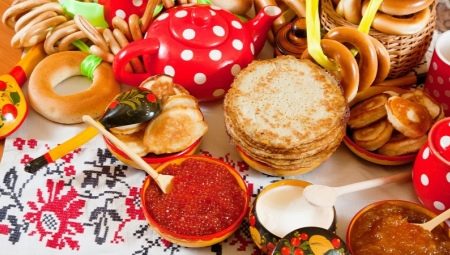
Maslenitsa is the favorite holiday of the Russian people, celebrated for 7 whole days. All week the people are having fun and rejoicing. Holiday fairs are held in each city, where guests can buy folk souvenirs, test themselves in various contests and competitions. Shrovetide week involves visiting and receiving guests in your home. And the main treat of the table is pancakes.
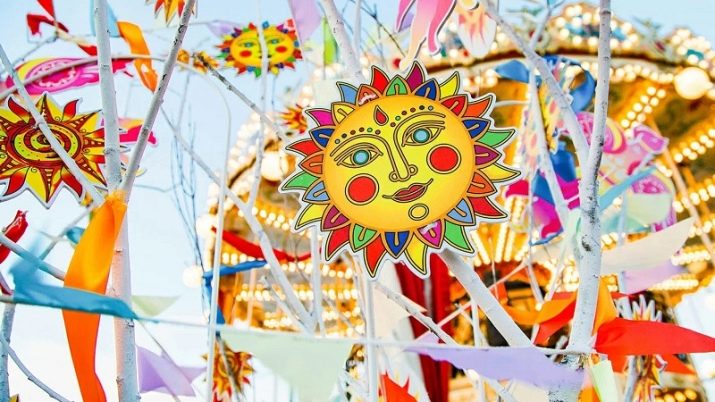
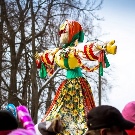
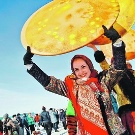
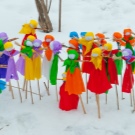
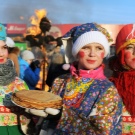
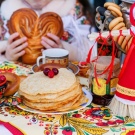
History of origin
Maslenitsa is one of the most anticipated holidays of Russian people, stretching for exactly one week. For 7 days, mass events are held in many cities and megalopolises, carnivals, fairs, contests and various master classes are organized. People of all ages and religions can take part in the fun. However, in the midst of the holiday, no one even thinks about when this holiday appeared, what is its history, what is the meaning of the holiday.
The roots of Shrovetide originate in paganism. It has survived in the Christian religion. Moreover, the church included Maslenitsa in the list of important sacred holidays, only under a different name. Initially, the week before Lent was called Cheese or Meat.
This is due to the fact that, according to Orthodoxy, a week before Lent, meat delicacies were removed from the diet, while dairy products received a predominant status.
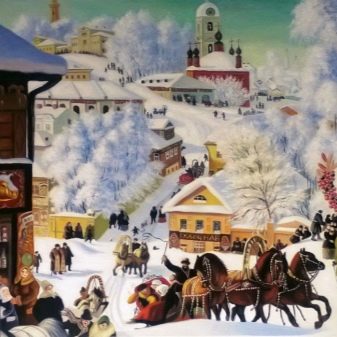
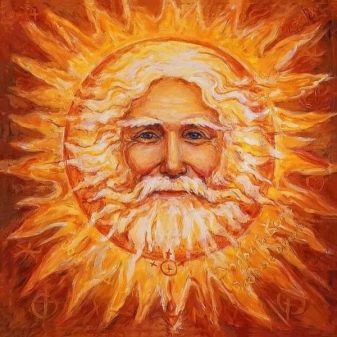
People say that Maslenitsa is considered the richest and most satisfying holiday. The ancient Slavs even called him "katatochka" and "kissing woman". In every home, preparations began in advance. As well as for festivities. From the first day of Maslenitsa, festive events began on the streets of villages and villages.Young people started dancing in the early morning, children danced in round dances, couples in love rode on a harnessed sleigh. The most beautiful harness was put on the horses, they were decorated with additional decor. Ice slides were an obligatory part of the fun.
From the 18th to the 19th century, comedy performance was an important part of the celebration. It was attended by mummers in the images of "Voevoda", "Maslenitsa" and other characters. The main storyline of the comedy was Maslenitsa. It was (and still is) characterized by an abundance of delicious food on the eve of the upcoming Lent. On the last day of the festive week, Maslenitsa seems to say goodbye, but promises to return next year. And all these moments were present in the comedy story, sometimes some events that took place in their native village or in a neighboring village were included in the script. The described holiday is characterized by the farewell to winter. According to the description, this week people said goodbye to the cold and greeted spring, singing merry songs on the snow-covered hills.
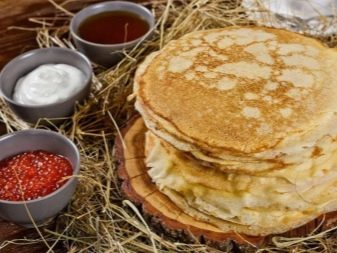
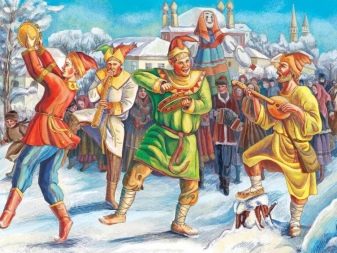
The main symbolism of Maslenitsa was and is a straw effigy. They dressed him in a woman's outfit, put several pancakes in his hand. Round dances were performed around the stuffed animal, and at the end of the holiday it was burned. Many are interested in why a scarecrow in a female guise was given to the fire. The answer is also stored in ancient history. Before the baptism of Russia, people worshiped gods who patronized various elements. Morena was the patroness of winter. She commanded the cold and frost. The people respected Morena and at the same time were afraid, since the cold winter never brought joy. Everyone was waiting for the arrival of spring.
This historical fact gives a clear explanation that the scarecrow being burnt is Morena. And the ceremony itself is marked by farewell to winter and its hardships. Pancakes were an important part of the festive table. They were baked every day, throughout the week. However, since Thursday, the amount of treats made had to be increased by 2 or even 3 times. The origin of the pancake tradition dates back to paganism. Surely everyone has heard about the sun god Yarila. It was he who was summoned by the people, wishing to drive away the winter. And the rounded pancake of a round shape bears a great resemblance to the summer sun.
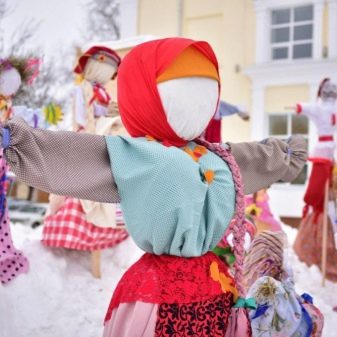
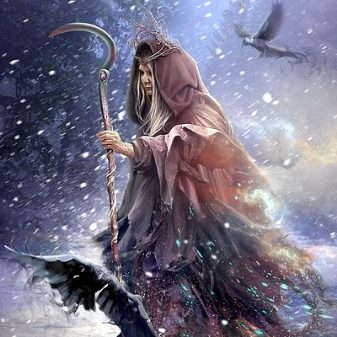
Few people know, but our ancestors divided the Maslenitsa week into two parts. The days from Monday to Wednesday were called “Narrow Pancake Week”, and from Thursday to Sunday “Wide Pancake Week”. The first part of the festive week was devoted to household chores. And the second part of the week meant meeting guests, merry gatherings and general festivities.
Remarkably, Maslenitsa is of great importance not only for Christians. Muslims treat the Orthodox with respect, and they, regardless of nation and religion, invite them over for pancakes. In many cities and countries, Maslenitsa is also celebrated, but not on such a scale as in Russia and is called differently.
For example, in the Armenian Apostolic Church the holiday of farewell to winter is called "Bun Barekendan".
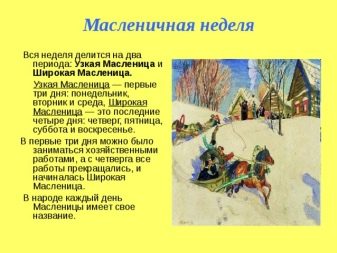
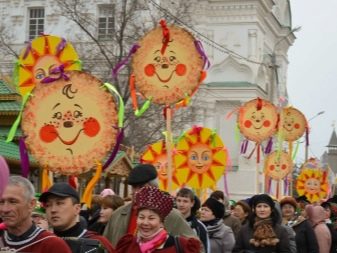
What number starts?
According to historians, according to the Slavic calendar, Maslenitsa is celebrated on March 21st. It was believed that it was on this day that spring came. However, the modern church, referring to its own chronicles, claims that the Maslenitsa week inscribed in the church calendar of the Russian Orthodox Church does not have a specific day. This holiday can be said to have a "floating schedule". The date and month of Shrovetide is determined by church officials and announced to the people. But in principle, everyone can calculate for himself, because Maslenitsa week begins 8 weeks before Easter.
This year's Pancake Week started on Monday 24 February and ended on Sunday 1 March. Accordingly, the ceremony of farewell to winter coincided with the first calendar day of spring. At this time, many regions of Russia felt the retreat of winter and the arrival of warm days. Many believe that such a coincidence is a message from above.
Based on the data presented, you can immediately determine when Maslenitsa will be in 2021. The Holiday Week starts on Monday March 8th and ends on Sunday March 14th.
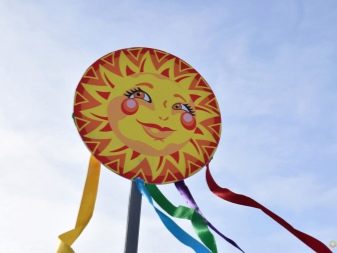

How many days are and what are these days called?
The whole festive week of Shrovetide is called differently, for example, "honest" "fun" or "Mrs. Shrovetide". Moreover, every day has an individual meaning and involves the performance of certain actions. On Sunday, before the start of the festive week, according to tradition, they visit and receive visitors in their home. The table should be filled with meat dishes, since meat cannot be eaten for the next week.
As mentioned earlier, Maslenitsa week is divided into 2 stages. 1st stage - Narrow Pancake Week.
- Monday - meeting. People began to prepare slides for skiing, the kids stuffed a stuffed animal with straw, dressed it in a woman's outfit and all together carried it around the streets. Swings were set up for the children, sweet tables were laid in the houses.
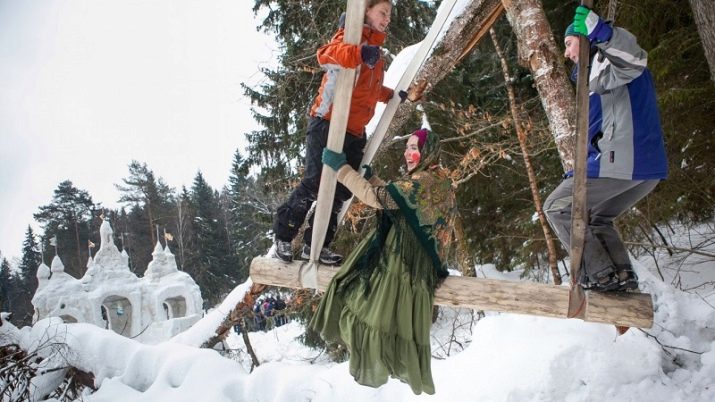
- Tuesday is a play. In the early morning all the fun began, roller coaster rides, games, fun. Maidens-beauties chose their betrothed, and good fellows were brides. However, wedding ceremonies were held only after Easter.
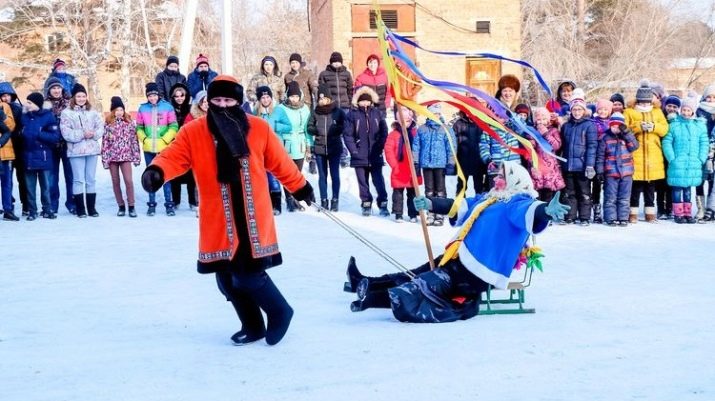
- Wednesday is a gourmet. Tables in every house were filled with delicious treats, and the main dish, of course, were pancakes.
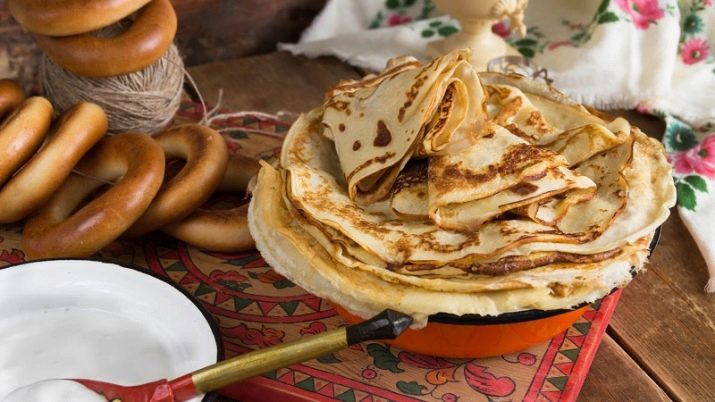
This is where the Narrow Shrovetide ends and the second stage of the festive week begins - Wide Shrovetide.
- Thursday - walk around. Horseback riding around the village began at dawn. This rite was characterized as helping the sun to drive away the cold.
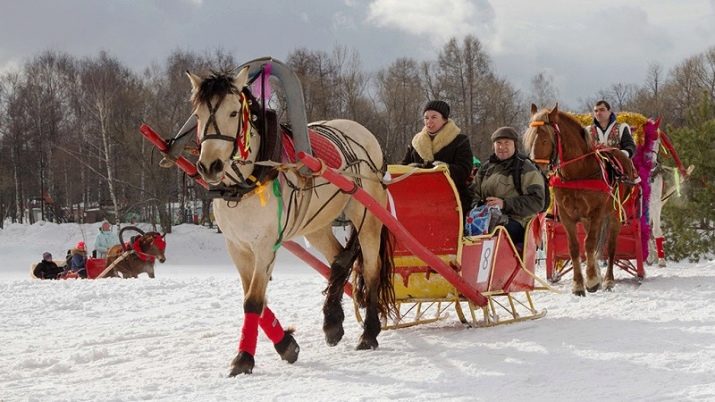
- Friday - mother-in-law's evening. The sons-in-law went to their mother-in-law for pancakes. Interestingly, this tradition is very popular even today.
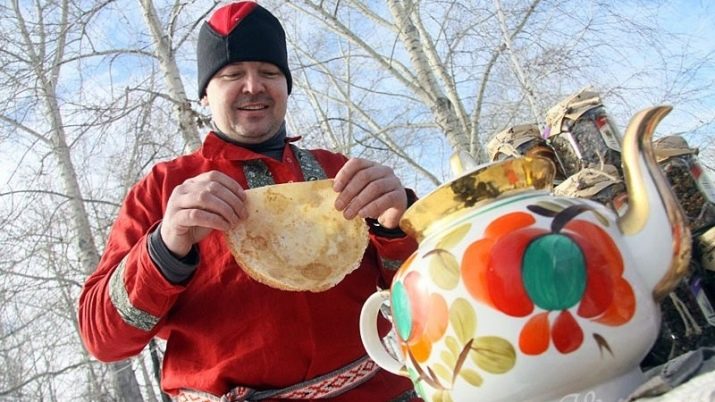
- Saturday - sister-in-law's gatherings. Day of visits to relatives.
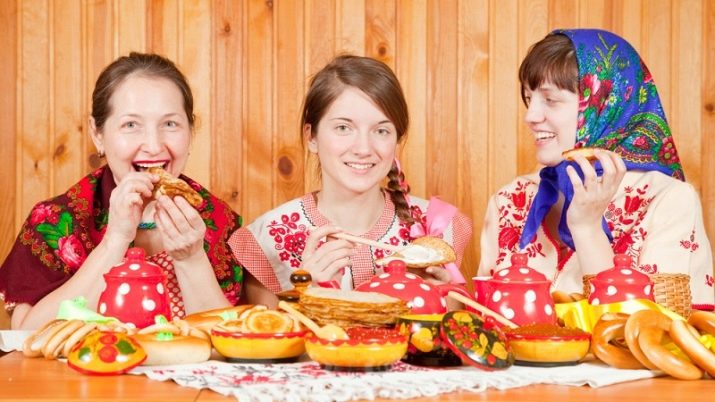
- Sunday is a forgiven day. That is the time when you should ask for forgiveness from all relatives, friends, relatives and friends, and then, with a merry round dance and dancing, a straw effigy is burned. When the symbol of winter burned down, the youth went to jump over the fire.
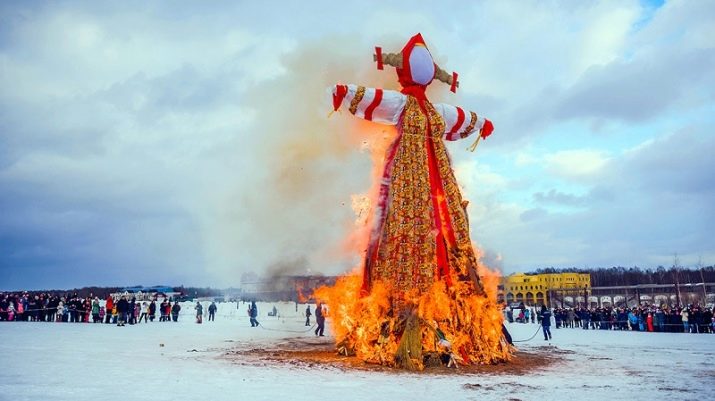
The end of Maslenitsa week, or rather the last stage of farewell, took place on the first day of fasting. This Monday is considered the day of purification. A visit to the bathhouse is obligatory to wash away all the bad things. Women were required to wash all dishes and remove fat from dairy products using a water bath.
Today Maslenitsa is celebrated on a slightly different scale. Urban conditions do not allow to arrange such festivities. But in the villages and villages they try to adhere to the traditions of ancient times.
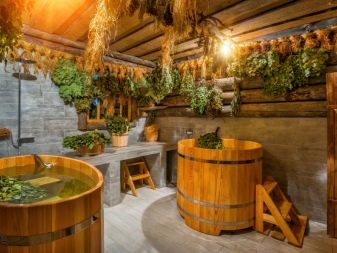

Table setting
Shrovetide tables should always be bursting with treats. And every day all dishes should be fresh, because guests can come at any time. However, not only treats are a feature of the festive table, but also its correct setting. When decorating a table in the Russian style, you should use earthenware and wooden dishes. Napkins and tablecloths should be made from natural materials such as cotton or linen. Textile products made of rough fabric or products with hand embroidery will look gorgeous. According to Slavic traditions, pancakes are eaten by hand on Shrovetide, so no cutlery is needed. And so that the guests do not get into an uncomfortable situation, pancakes should be laid out in advance by the portion method.
And here there are no boundaries when it comes to decorating prepared dishes. Empty pancakes can be folded into a triangle, and filled pancakes can be folded in the shape of a bag, pads and more. Salads on the table are also decorated with pancakes. Golden circles are laid out on the bottom and along the edges of the container, and chopped vegetables are laid out inside. Thanks to the possibilities of our time, pancakes can be made colorful. This option for decorating the main dish of Maslenitsa will appeal to young children. You can also make delicate pancakes using a plastic bottle with holes in the lid.
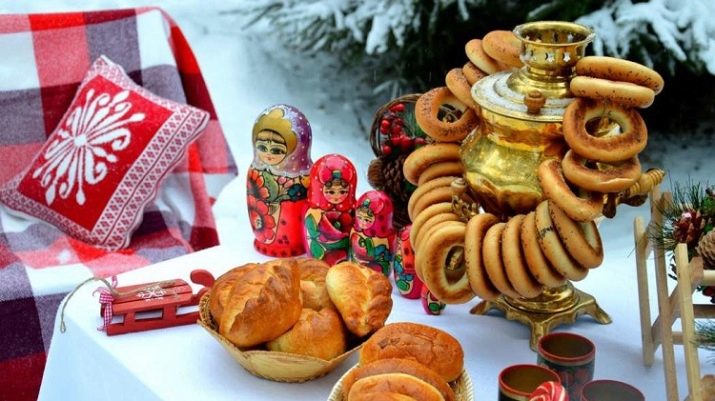
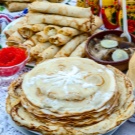
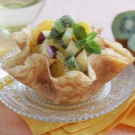
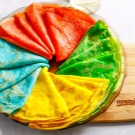
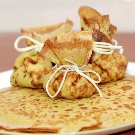
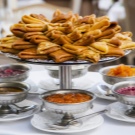
Features of the celebration
Traditionally, pancakes are baked on Shrovetide, and the whole week of the holiday is characterized by holding mass events. But these are not all the features of the celebration. At this time, it is customary to visit relatives and friends, as well as invite everyone to their home. An important feature of Shrovetide is the ability to ask forgiveness from your family, friends and loved ones for any insults. And, of course, to forgive those who have done evil yourself. Children can be baptized during Maslenitsa week. It is believed that this is the best time for this ceremony. You can have a wedding, but not have a huge feast, since this week is preparation for Lent. But you can't get married on Shrovetide.
As far as food is concerned, Maslenitsa week has a number of restrictions. You can't eat meat, but fish, eggs, milk and cheese, on the contrary, will be held in high esteem. The formation of such a diet occurred before the spread of the Christian religion. By the onset of spring, the entire supply of meat from the ancient people was running out, and protein products were used as an alternative. During Shrovetide week, in no case should you be offended by your family, you should not be greedy, you should not overeat.
Alcoholic drinks can be consumed, but only a little.
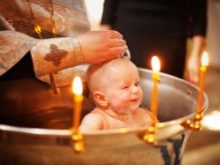

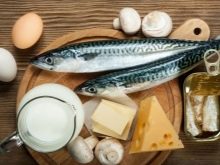
In Russia
The celebration of Maslenitsa in Russia has always been and is going on on a grand scale. During the Narrow Shrovetide, people prepared slides, swings, a scarecrow, decorated houses and prepared firewood for burning Morena. Today, fairs are being set up in cities and megalopolises, swings are set up, places for round dances are being set up, and comic competitions are organized. But, unfortunately, it is impossible to cover the whole city with a holiday. Despite this, city dwellers still go to the places where the holiday is held to enjoy delicious pancakes, to plunge into the joy and fun of the holiday.
Both in the past and today, funny theatrical performances are held at the fairs, where you can see the characters of Russian folk tales, look at a live bear. In some cities, ice fortresses are being built, where competitions are held to capture the “enemy's” castle. Snowballs are used as weapons. From the past to the present day, fun has come in the form of ice skating, rolling downhills on ice and fistfights. But the most important thing is the burning of an effigy, a symbol of winter.
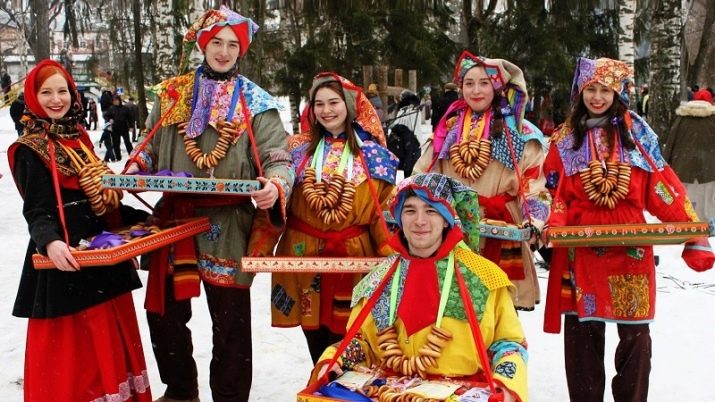
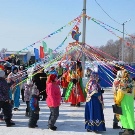
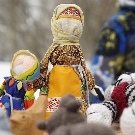
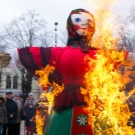
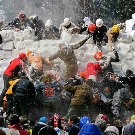
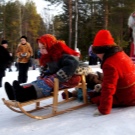
In other countries
Maslenitsa is celebrated not only in Russia, but also in other countries.... Of course, not on such a large scale, but still certain events are being held. In England, they organize a women's race, where the participants run, holding a pan with pancakes in their hands. In Sweden, in honor of Maslenitsa, a procession of musicians is held along the night streets of cities. Germany celebrates Shrovetide with a procession led by the Prince, the Virgin of the Colony and the Peasant. And in Poland, the violinists of village taverns woo unmarried girls.
"Kuretovane" is held in Slovenia. This rite of expulsion of cold weather, taking place on the last day of Pancake week. Roughly the same ceremony takes place in Croatia, only it is called "bell-ringers". The guys dress in animal skins, put on horns and walk the streets, scaring away the winter cold. Danes, Norwegians, Estonians and Latvians celebrate the Scandinavian carnival. This is a massive celebration preceding the beginning of Lent. The main treats of the carnival are baked goods with a wide variety of fillings.
Americans and French-speaking Europeans have mardi gras. This is a bustling carnival led by a king and queen.
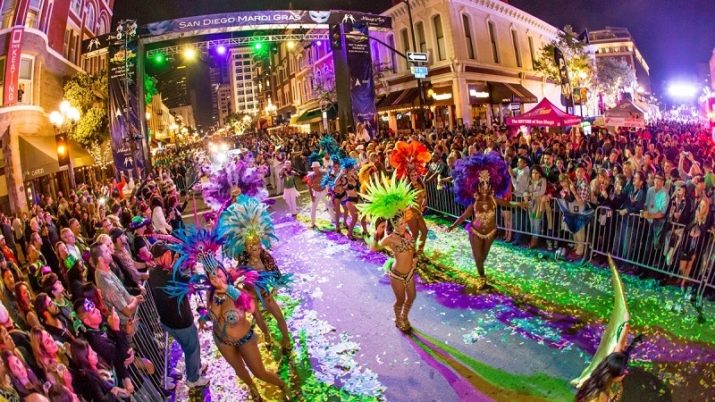
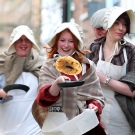
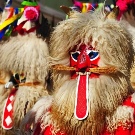
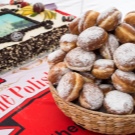
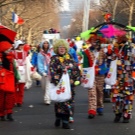
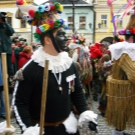
Signs
Any national holiday is accompanied by a number of superstitions, which, by the way, are still remembered by the Russian people. Of course, there are those that were invented 30 years ago, but society does not believe in them. And this is correct, because true omens were observed by our ancestors for many years, and after that they went through stages of verification in order to declare their solvency.
For example, Maslenitsa week is the best time for fortune-telling. At this time, girls could find out the name of their betrothed, the date of the wedding, and even the gender of the unborn child. However, the church recommends not to guess during the Maslenitsa celebration. Since the forces that do not always carry good help to find out the future, and without special rules of fortune-telling, you can summon a very evil spirit.
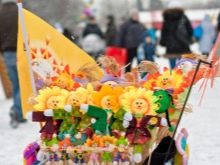
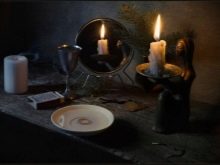
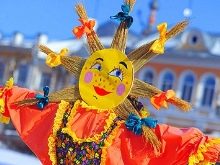
There are a number of harmless signs that have shown their veracity in practice.
- Smooth pancakes promise joy and good luck in the family. Sticky and burnt cakes indicate impending troubles.
- The more pancakes will be baked for Shrovetide, the stronger the financial situation of the family will be.
- If it rained before Shrovetide, then there will be a rich mushroom harvest. If the cold hits, the summer will be wet.
- On Shrovetide it is necessary to treat guests, not to be greedy, otherwise the coming year will bring a lot of quarrels and disappointments.
- On the last day of Maslenitsa week, it is necessary to throw out old rubbish from the house, then the accumulated problems and troubles will pass by themselves and be forgotten.
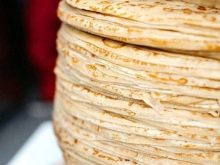


Interesting Facts
Surely many are sure that they know everything about Maslenitsa and the festive week. In principle, yes, parents and grandparents told everyone about this holiday. But some might have forgotten something, others told it wrong. To correct all the incomprehensibility, it is proposed to consider 9 facts about Maslenitsa, which can close possible gaps in knowledge about this celebration.
- Shrovetide is a pagan holiday. Based on this fact, some people categorically refuse to celebrate it and put pressure on others, forcing them to give up baking pancakes, having fun and burning a scarecrow at the stake. But even the Orthodox Church belongs to the adherents of Shrovetide week, as it adopted this holiday back in the 17th century.
- The word "Shrovetide" has a huge connection with the word "oil". This name is a generalization of dairy products that are allowed to eat before Lent.
- Initially, the Maslenitsa holiday had a different name - "Komoeditsa". It comes from the Slavic word "com", which means bear in translation. After some time, Komoeditsa became a Belarusian holiday, marking the awakening of the bear after hibernation, celebrated on April 6.
- Few people know, but pancakes were not always considered a symbol of Maslenitsa. Initially, they were prepared for funeral dinners. They received the status of "sun" in the 19th century. The reason for this was the mistake of cultural researchers. But this was to the liking of the Russian people, no one even noticed that the Shrovetide table had turned into pancake dishes.
- Burning a scarecrow is not only a rite of farewell to winter. First of all, it was a sacrifice. The scarecrow was a symbol of fertility. After burning it, the ashes were collected and scattered over the fields.
- In some villages and villages of Russia, the scarecrow was buried. For him, a box was hammered together, a kind of improvised coffin, the stuffed animal was placed in it and carried along the streets. Well, then the construction of boards and the doll itself were burned at the stake.
- Shrovetide has another name - "woman's week". Throughout the festive time, women were forbidden to sew, knit, spin. The only thing they were allowed was to fry pancakes, go to visit with them and receive relatives in their home.
- Each housewife has her own recipe for making pancakes. Some make dough with kefir, others with milk, others with water. For some housewives, pancakes are thick, for others they are thin, for others they are small, and for others they are large. And most importantly, all the proposed options have a different taste. The guests who regularly visited the guests knew where what flavors and tastes of pancakes awaited them. The same was true for shape and size. And if the Russian people did not bother about these parameters, other nationalities wanted to attract attention to themselves. So in the UK, in 1994, the largest pancake in history was baked. But only locals and tourists could appreciate its taste.The townspeople of Russian corners only watched this fact, looking at the TV screen.
- Catholics have their own holiday, which is analogous to Maslenitsa. This is the "Carnival" celebrated before the beginning of Lent. Translated from Latin, the name of the holiday sounds like "goodbye meat."
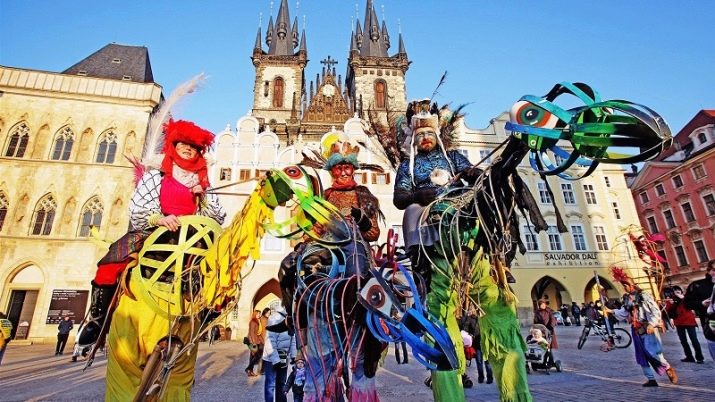


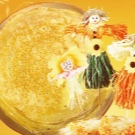
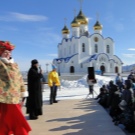
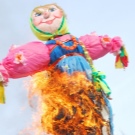
But the most important thing is that this holiday does not recede into the background, but every year it becomes more ambitious. Adults and children are eagerly awaiting him. Hot pancakes with homemade sour cream are especially tasty.
In the next video, you will find a brief history of the origin and meaning of the holiday.








